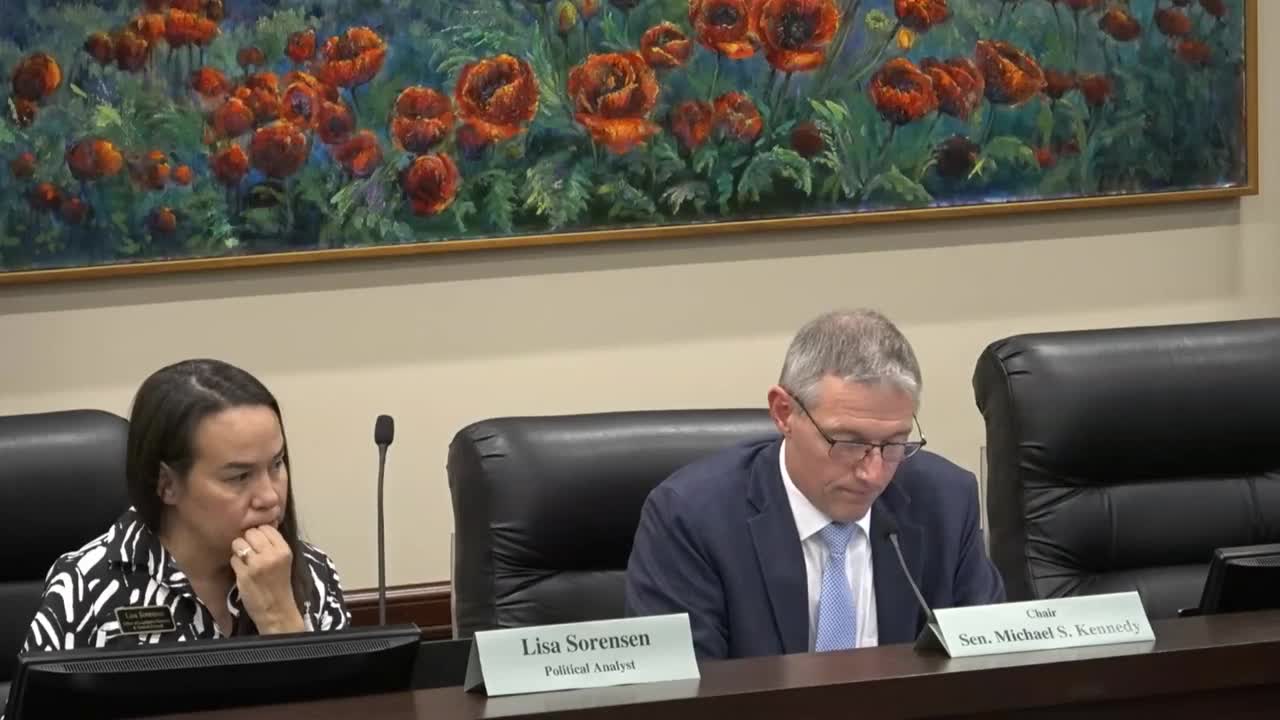Addressing the looming crisis in elderly care services
August 16, 2024 | Senate Health and Human Services Confirmation Committee, Utah Senate, Utah Legislative Branch, Utah
This article was created by AI summarizing key points discussed. AI makes mistakes, so for full details and context, please refer to the video of the full meeting. Please report any errors so we can fix them. Report an error »

In a recent government meeting, discussions centered on the urgent need to improve care for the aging population, particularly in light of vulnerabilities exposed during the COVID-19 pandemic. Participants emphasized the importance of local public health systems and the necessity for better coordination in elder care services.
One key speaker advocated for home-based care and waiver programs, suggesting that facilities should be a last resort. They highlighted the significance of maintaining social connections and ensuring access to essential services such as food, shelter, and transportation for elderly individuals wishing to remain in their homes. The speaker also pointed out that funding and staff experience are critical factors in enhancing care quality, alongside integrating social services within care facilities.
The conversation also touched on the impending demographic shift, often referred to as the \"gray tsunami,\" where a significant increase in the elderly population is expected over the next 30 years. This shift poses a challenge for policymakers to develop proactive strategies to meet the needs of this growing demographic.
A proposal was made to adopt models focusing on the \"4 M's\" of healthy aging: what matters most to individuals, medication management, mentation (cognitive health), and mobility. The University of Utah and the Veterans Hospital are already participating in initiatives aimed at addressing these areas, which are crucial for maintaining the health and well-being of older adults.
The meeting concluded with a call for enhanced training programs for caregivers and a more coordinated approach to elder care, ensuring that Utah is prepared to meet the challenges posed by its aging population.
One key speaker advocated for home-based care and waiver programs, suggesting that facilities should be a last resort. They highlighted the significance of maintaining social connections and ensuring access to essential services such as food, shelter, and transportation for elderly individuals wishing to remain in their homes. The speaker also pointed out that funding and staff experience are critical factors in enhancing care quality, alongside integrating social services within care facilities.
The conversation also touched on the impending demographic shift, often referred to as the \"gray tsunami,\" where a significant increase in the elderly population is expected over the next 30 years. This shift poses a challenge for policymakers to develop proactive strategies to meet the needs of this growing demographic.
A proposal was made to adopt models focusing on the \"4 M's\" of healthy aging: what matters most to individuals, medication management, mentation (cognitive health), and mobility. The University of Utah and the Veterans Hospital are already participating in initiatives aimed at addressing these areas, which are crucial for maintaining the health and well-being of older adults.
The meeting concluded with a call for enhanced training programs for caregivers and a more coordinated approach to elder care, ensuring that Utah is prepared to meet the challenges posed by its aging population.
View full meeting
This article is based on a recent meeting—watch the full video and explore the complete transcript for deeper insights into the discussion.
View full meeting

